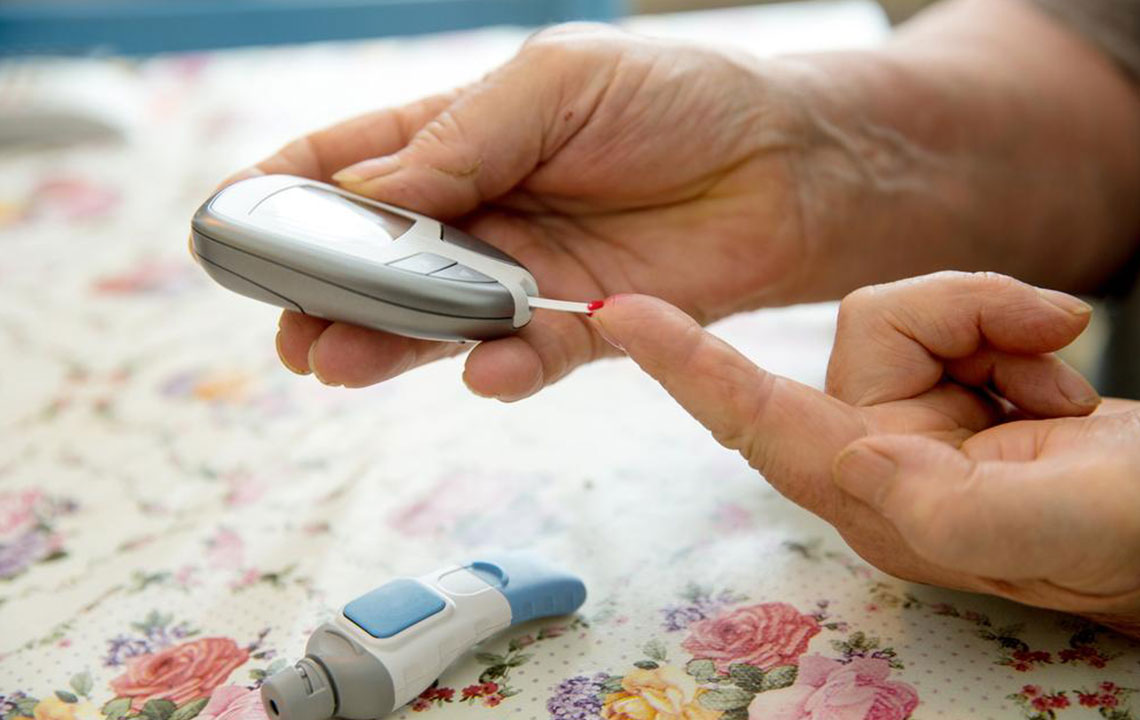All You Need to Know About Adult Type 2 Diabetes
Type 2 diabetes is a chronic disorder which was earlier referred to as adult-onset or noninsulin-dependent diabetes. It affects the metabolism of glucose or sugar in the body. Glucose is the major source of energy for our body. Currently, in America 29.1 million people have diabetes. However, as large as 8.1 million of them are yet to be diagnosed and are unaware of their disorder. Every year the strength of this group of patients increases by about 1.4 million, becoming one of the most common health issues faced by the entire nation.

Insulin is a hormone produced by our body that maintains blood glucose levels by regulating its movement into cells. When having adult type 2 diabetes, our bodies become inefficient in managing the glucose levels in the body. It either produces an inadequate amount of insulin leading to an excess level of glucose, or the body resists the function of insulin.
Symptoms and signals
Type 2 diabetes, unfortunately, does not manifest early. The symptoms show up slowly; sometimes it takes a few years to realize a diabetic condition. The following are common signs that you should not ignore since they could indicate failing insulin function.
- High urination frequency
- Increased appetite or frequently getting hungry
- Loss of weight
- Tiredness and fatigue
- Vision blurring
- Incurring frequent infections
- Sores taking long time to heal
- Skin darkening
Treating Adult Type 2 Diabetes
Blood sugar levels can be kept in check with regular monitoring and controlled diet. Although, in case of severely high blood sugar levels, medication and therapy involving insulin injections are required. Consult your doctor for understanding what is the best-suited medication for your condition is. Most common treatment options for adult type 2 diabetes have been listed below.
Sulfonylureas
Sulfonylureas stimulate the pancreas leading to better insulin secretion. Most common side effects of this drug are weight gain and low blood glucose.
Meglitinides
This component works in a similar fashion to Sulfonylureas. In fact, they are quicker in action and their side effects do not last as long as Sulfonylureas. Meglitinides have less severe side effects as compared to Sulfonylurea.
Thiazolidinedione
It increases tissue sensitivity to insulin. Thiazolidinedione is associated with increased heart attack risk and putting on weight.
DPP-4 Inhibiting drugs
It works by decreasing the level of glucose in the blood. Quite a mild drug and does not cause any harmful side effects.
GLP-1 Receptor Agonistic drugs
These drugs bring down the amount of glucose into the bloodstream. They are associated with weight loss, nausea, and increased pancreatitis risk.
SGLT2 Inhibitors
It is a recent drug that stops reabsorption of glucose into the bloodstream. Instead of getting back into the bloodstream, it goes by the kidney along with urine. Since it interferes with the excretion system, the drug is known to cause side effects like UTI or yeast infection. It may even lead to hypotension in some patients.
Insulin therapy
If your blood sugar level is severely high, you may require insulin therapy. This therapy involves the injection of insulin directly into the bloodstream. The advantage of this method is that unlike oral drugs, it is unaffected by normal digestion. Most doctors prescribe insulin therapy to patients at a relatively earlier stage. Consult a doctor for the exact dosage. Insulin therapy users get prescribed shots in the night that may act for many hours.
Diet plan for adult type 2 diabetes
Blood sugar level is directly related to your diet. Any treatment for diabetes begins with the right diet plan and goes on to the therapies. Diabetic people don’t need to alter their food habits drastically. The following are most important factors to consider.
- Stick to a food schedule and do not skip meals.
- Opt for high nutrition instead of empty calories.
- Be cautious of overheating.
- Be aware of ingredients in packaged foods.
What to eat
Carbohydrates with healthy fiber.
Foods with heart-healthy omega-3 fatty acids.
Healthy monounsaturated and polyunsaturated fats.
What not to eat
Certain foods are harmful to people with adult type 2 diabetes. Diabetic diet, however, need not be same for all. Consult a doctor and dietician to elicit a clear plan that best suits your needs.They must try to reduce consumption to minimal or avoid the following foods if possible.
- Saturated Fats
- Trans fats
- Shellfish
- Processed meats, beef, organ meats
- Shellfish
- Stick margarine
- Baked foods, processed snacks
- Sugary drinks
- High-fat dairy products
- Salty and fried foods
Adult type 2 Diabetes cured can effectively be managed if you exercise caution. You can lead a normal life if you learn and practice managing it well. This is possible when you eat right and exercise regularly. Although, in spite of maintaining a healthy lifestyle, if you are unable to bring down your blood sugar level, then you would require prescribed treatment.